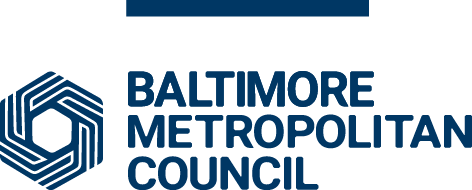
BALTIMORE, MD (Wednesday, July 26, 2023) – The Baltimore Regional Transportation Board (BRTB) voted to adopt the Resilience 2050 long-range transportation plan, 2024-2027 Transportation Improvement Program and associated Air Quality Conformity Determination at their meeting on Tuesday. The plans apportion an anticipated $74 billion investment in the Baltimore region’s transportation system.
Todd Lang, Director of Transportation for Baltimore Metropolitan Council, the agency that staffs and supports the BRTB, said that the plan represents progress for the region.
“It’s an important step to get the plan in place so that we can allow for some of these major projects to move forward,” said Lang. “We’d like to thank the members of the public who have shown up today and throughout the planning process.”
In the coming years, the region’s transportation system – including roads and bridges, transit, sidewalks, bicycle and shared-use paths – will face factors such as increased demand, changing user needs and climate impacts. The investments in the BRTB’s long- and short-range plans lay the groundwork to meet these challenges, continue to improve mobility and better serve the transportation needs of communities across the region.
The BRTB released drafts of the plans to the public on May 17 and sought comments through June 20. This comment period followed nearly two years of drafting and development, including public comment periods on goals and strategies for Resilience 2050, as well as on a series of white papers with more detail on planning areas. The BRTB hosted one virtual and seven in person open house meetings in May and June to discuss the plans in more detail with any interested parties. The BRTB ultimately received more than 100 comments from individuals and groups.
These comments largely include positive sentiment toward investments in transit, bicycle and pedestrian facilities, as well as negative sentiment toward spending on roadway expansion. A few members of the public joined the meeting and called for the BRTB to delay voting in order to rework the plans, shifting investments from roadway to transit facilities. However, the BRTB voted unanimously to adopt the plans, noting that the documents can be amended and will be updated in the coming years.
D’Andrea Walker, Baltimore County Department of Public Works and Transportation Director and representative for Baltimore County Executive Johnny Olszewski, BRTB Chair, acknowledged the frustrations expressed in several public comments, and stressed that the BRTB hears those concerns.
“But we also don’t want to slow down the process of implementing long-term projects we’ve been waiting for,” Walker said. “We have a new administration in Annapolis, and we have a new secretary at MDOT. We have the ability to move in a new direction as related to transit.”
Bruce Gartner, Howard County Office of Transportation Administrator and representative for Howard County Executive Calvin Ball, BRTB Vice Chair, also noted that changes in state leadership create new opportunities to advocate for increased transit investments in the region.
“These things take time to change,” Gartner said. “The comments are not in vain – they help set us up for continued momentum and action.”
Gartner said that public comments inform future planning efforts, and can help the BRTB continue to adjust to the evolving needs and priorities of communities in the region.
In drafting Resilience 2050, the BRTB made several adjustments based in part on public feedback, including additional scoring criteria boosting transit candidate projects. Notably, Resilience 2050 includes twice as much transit investment as the BRTB’s previous long-range transportation plan, including funding for an east-west transit corridor in Baltimore City, Bus Rapid Transit on US 29 in Howard County and 17 transportation hubs around the region.
The adopted plans will now be shared for review with federal agencies including the Federal Highway Administration, Federal Transit Administration and Environmental Protection Agency. Meanwhile, progress continues on transportation projects around the region that appeared in the BRTB’s previous long- and short-range plans.
Also at Tuesday’s meeting, planners from the Howard County Office of Transportation shared more details on the development of a Complete Streets policy supporting improved mobility for users of all modes, recently named by Smart Growth America as the strongest Complete Streets policy of any jurisdiction in the country.
A recording of the meeting is available online. The next BRTB meeting will take place on Tuesday, August 22.
###
Baltimore Metropolitan Council (BMC) works collaboratively with the chief elected officials in the region to create initiatives to improve quality of life and economic vitality. As the Baltimore region’s council of governments, BMC hosts the Baltimore Regional Transportation Board (BRTB) and supports local government by coordinating efforts in a range of policy areas including emergency preparedness, housing, cooperative purchasing, environmental planning and workforce development.
BMC operates its programs and services without regard to race, color or national origin in accordance with Title VI of the Civil Rights Act of 1964 and other applicable laws. Appropriate services can be provided to qualified individuals with disabilities or those in need of language assistance who submit a request at least seven days prior to a meeting. Call 410- 732-0500. Dial 7-1-1 or 800-735-2258 to initiate a TTY call through Maryland Relay. Si se necesita información de Título VI en español, llame al 410-732-0500.
